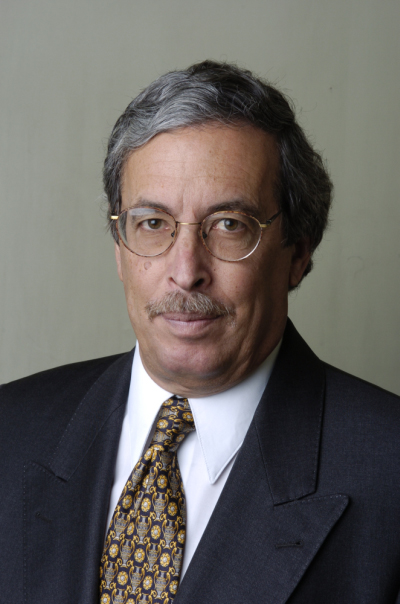Geneva visitors are a bellwether for global priorities
Two visits to Geneva – those of Chinese President Xi Jinping and US Secretary of State Rex Tillerson – say a great deal about world affairs, finds political scientist Daniel Warner.
President Xi made a state visit to Switzerland from January 15-18, 2017, when he met Swiss President Doris Leuthard, spoke with representatives from international organisations in Geneva and Lausanne, and opened the 47th annual World Economic Forum in Davos. At each venue, Xi praised multilateralism and China’s willingness to cooperate.
Secretary Tillerson visited Geneva in late October at the end of a week-long trip to the Middle East, Pakistan and India. According to the US Mission, his agenda while in Geneva included meetings with UN Special Envoy for Syria Staffan de Mistura, members of the press, and US Mission staff and their families.

No time for humanitarian groups
There is no question that Secretary Tillerson is a busy man. And there is no question that his visit to Geneva focused on the Syrian crisis. However, he did not meet with Peter Maurer, the president of the International Committee of the Red Cross (ICRC), as originally planned because of “his full agenda”, as communicated by the ICRC. Mr. Tillerson was too busy to meet with the head of the world’s largest humanitarian organisation who might have had some input into discussions on the situation in Syria.
Tillerson was also supposed to meet with Filippo Grandi, the Director-General of the United Nations High Commissioner for Refugees (UNHCR). That meeting was also cancelled. Another cancelled event involved the head of the International Organization for Migration (IOM), William Swing, a former United States Ambassador. Neither the ICRC nor UNHCR would comment on the cancellations. The IOM said it was “disappointed”. Joel Millman, IOM spokesman, told Voice of America that “no reason was given as to why the meeting was cancelled”.
Other high-profile visits
Geneva prides itself on being the world’s centre of multilateralism. There are 165 countries represented in Geneva, 33 international organisations, and 250 non-governmental organisations. Important summit meetings have taken place in the city, such as between Ronald Reagan and Mikhail Gorbachev in 1985. And the US Secretary of State could only pay a drop-by visit?
Former US Secretary of State John Kerry made more than a drop-by to Geneva on October 20. His presentation to a select audience was filled with nostalgia for his efforts to conclude the Iran nuclear arrangement and harsh criticism for the Trump administration, specifically its efforts to unravel the Joint Comprehensive Plan of Action.
Kerry’s presence and emphasis on multilateralism was a most welcome reminder that the Tillerson snub of multilateralism is only recent history. The hawkish nationalism expressed in the same room by US Ambassador to the United Nations Nikki Haley has not always been US policy. Ambassador Haley rightly referred to the role of Eleanor Roosevelt in the establishment of the Human Rights Commission. But her challenges to the current Human Rights Council were thinly disguised threats to withdraw, as the United States has recently done from UNESCO.
“For our part, the United States will not sit quietly while [the Human Rights Council], supposedly dedicated to human rights, continues to damage the cause of human rights,” she said.
Contrasting signals
China is showing more openness than the United States. US arrogance, with its “America First” agenda, has put off world opinion and highlighted its retreat from multilateral leadership.
Problems such as climate change, terrorism and refugees will not be solved by unilateralism. Resurgent nationalism may appeal to local populations and local politicians. But unilateralism will not solve 21st-century global problems.
The Xi visit earlier this year symbolised China’s recognition of the need for global cooperation and its desire to lead. Secretary Tillerson’s quick drop-by symbolised America’s retreat. Both visits were certainly analysed by Geneva’s international community and say a great deal about the countries’ priorities.
The views expressed in this article are solely those of the author, and do not necessarily reflect the views of swissinfo.ch.
Opinion series
swissinfo.ch publishes op-ed articles by contributors writing on a wide range of topics – Swiss issues or those that impact Switzerland. The selection of articles presents a diversity of opinions designed to enrich the debate on the issues discussed.

In compliance with the JTI standards
More: SWI swissinfo.ch certified by the Journalism Trust Initiative









You can find an overview of ongoing debates with our journalists here . Please join us!
If you want to start a conversation about a topic raised in this article or want to report factual errors, email us at english@swissinfo.ch.